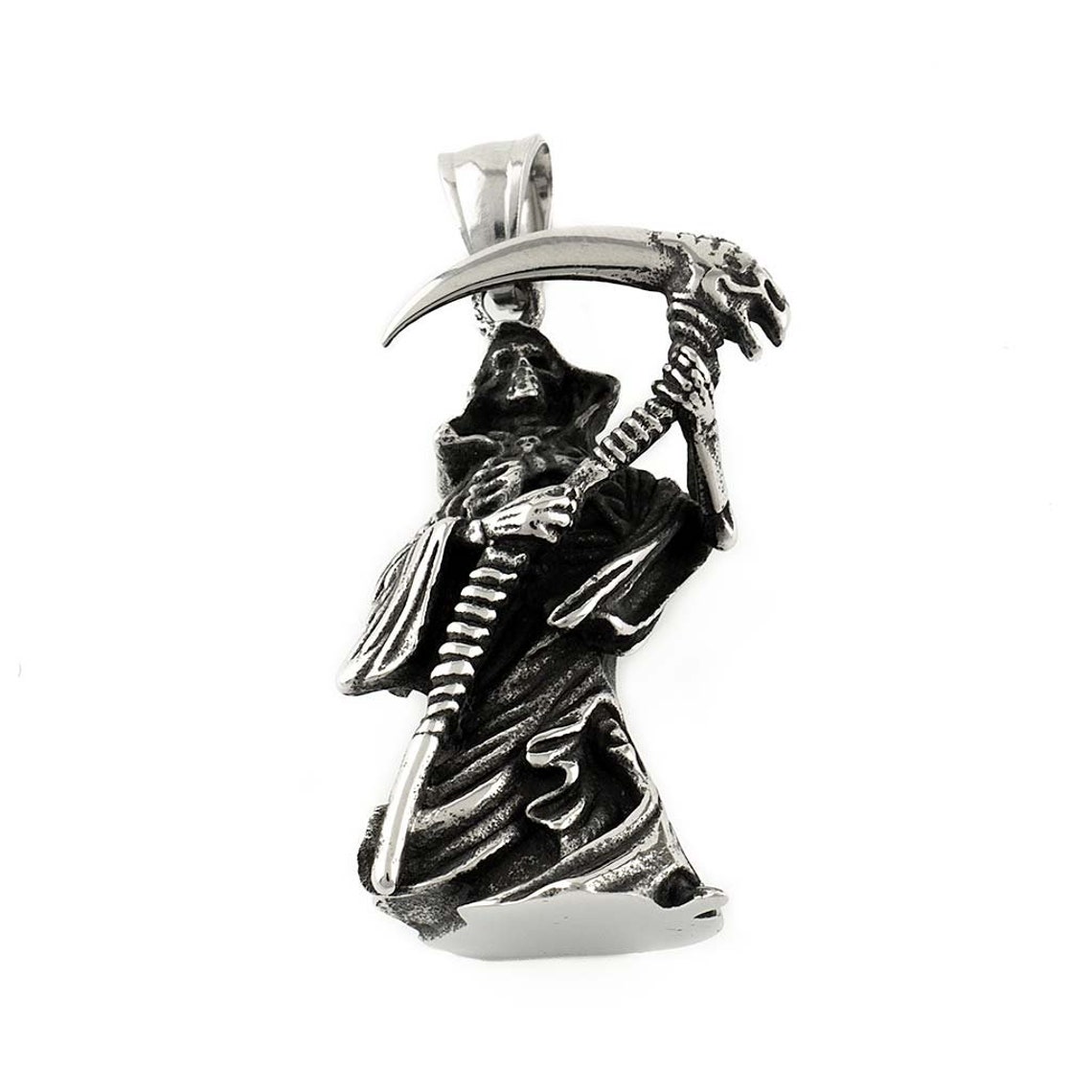
On Screen: Cinematic sad sack Paul Giamatti plays Pekar in the film version of American Splendor.ĭid You Know?: Jonathan Demme tried to adapt American Splendor in the '80s, but the project never came to fruition as Demme wasn't yet an established director.īuy The New American Splendor Anthology: From Off the Streets of Cleveland now on Amazon 47. Trademarks: Poor fashion sense, middle-aged frustration, dour outlook and general whining. Besides covering his courtships, marriage, illnesses, career reversals and brushes with fame, Pekar has opened up the comic to chronicle the lives of his friends.
#Metal reaper online charater not showing movie#
Eventually, the irregularly-published comic book - and its several sequels ( Our Cancer Year, Our Movie Year, The Quitter) - made Pekar a fringe celeb, better-known for his fractious, controversial appearances on The David Letterman Show until the film adaptation brought attention to his ongoing comics. Harvey Pekar, a fairly miserable and obsessive fellow who works as a file clerk in a Veterans' Hospital in Cleveland, Ohio, is the creation of Harvey Pekar, a writer who sets out to chronicle his everyday life in comic form, recruiting artist Robert Crumb and others to illustrate anecdotes about the cranky hero's mundane, frustrating life. On Screen: Georges Wilson and Jean Blouise played him in 1960s French films ( Tintin And The Golden Fleece, Tintin And The Blue Oranges), Paul Frees dubbed the voice in internationally-seen cartoons (providing definitive live readings of the "blistering barnacles" business), and some bloke called Steven Spielberg directed the bequiffed Belgian in stop-motion animation The Adventures Of Tintin: The Secret Of The Unicorn.ĭid You Know?: The Captain's name was suggested by Hergé's wife, who explained that a haddock was "a sad English fish".īuy Adventures of Tintin: Red Rackham's Treasure now on Amazon 48. Catchphrase: "billions of bilious blue blistering barnacles!" ("Mille millions de mille milliards de mille sabords.") Trademarks: Captain's hat, bushy beard, tumbler of whisky and a roll-neck pullover. Pursuit of whisky is his defining motive – he even got drunk on a trip to the Moon! One of the most human and perversely admirable characters in fiction.

The full-bearded alcoholic, rageaholic, commitment-phobic British sea captain lucked into a fortune ( Red Rackham's Treasure) and wound up drinking himself insensible in Marlinspike Hall, occasionally giving vent to amazingly picturesque salty language (often through a megaphone) when assailed by bashi-bazouks, troglodytes, prize purple jellyfish, Incan mummies and Signorina Bianca Castafiore, 'the Milanese nightingale'. Tintin's most enduring sidekick turned up in the ninth of the young reporter's adventures, and became more and more prominent thereafter – eventually becoming practically the main character. The energy fuelling it, however, is not and if Spawn ever exhausts his reserves it's a one-way ticket back to hell.īuy Spawn Origins Volume 1 now on Amazon 49.
#Metal reaper online charater not showing series#
On Screen: An award-winning HBO animated series ran in the late '90s, as well as a markedly less successful live action movie starring Michael Jai White.ĭid You Know?: The scope of Spawn's hell magic is limited only by his imagination. Trademarks: A Billowing, semi-sentient cape, trailing chains, glowing green eyes and hell-derived magical powers. His popularity has since waned, but Spawn remains an iconic crusader, both for the characters in his stories and creator-owned comic books.

While he began as a traditional – if unorthodox – vigilante hero, Spawn grew increasingly dark over time, slipping further into an anti-hero role as the theology-heavy storylines became increasingly twisted. Created by Spider-Man legend Todd MacFarlane, Spawn was a murdered CIA operative who makes a deal with the demon Malebolgia, returning to Earth as an immortal, Hellspawn. Among their numerous launch titles, Spawn would prove to be by far the most popular. In 1992 a group of Marvel's top artists, frustrated with having their work exploited, walked out to form Image Comics, a place where creators would retain the rights to the characters they created.


 0 kommentar(er)
0 kommentar(er)
